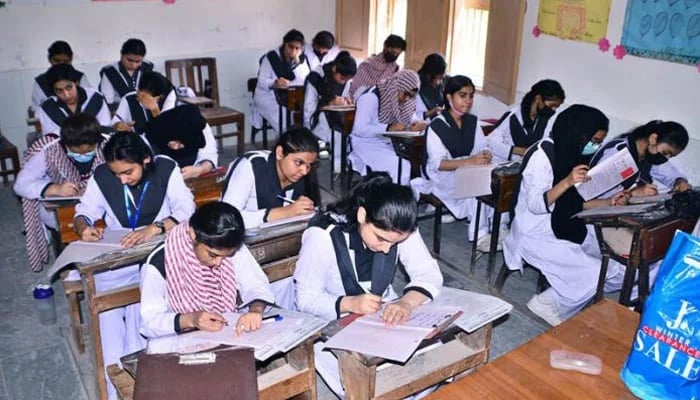Sindh government issues new policy for college admissions
Only students with A+ and A-grade will have privilege to get admission to any college of their choice
June 25, 2023

- New college zone system launched for Karachi region.
- Students with B, C, D and E grades to apply in their zones.
- Colleges bound to form admission committees.
KARACHI: In coordination with the Sindh College Education Department, the Sindh government has issued a policy for granting admissions to the first year of the Higher Secondary School Certificate (HSSC) to assist students seeking admissions at their desired colleges, The News reported.
Moreover, a new college zone system has been launched for the Karachi region.
Officials said that a meeting was recently held between the provincial government officials and the education department to provide a policy so that students who have completed matriculation and seek to continue their education do not face difficulties in getting admissions.
In this regard, the government issued a policy, with directions to the colleges' management.
The issued order reads: “The College Education Department has approved the procedure for granting admissions to first year for the session 2023-24 in government colleges of Sindh under the Sindh Electronic Centralised College Admission Programme (SECCAP-2023-24).”
Under SECCAP-2023-24, applications from candidates will be received on the website seccap.dgcs.gos.pk with effect from June 27, with the last date of submitting online applications being July 20, which can be extended up to August 1, if required.
The issuance of placement lists of all faculties for admissions to colleges will be ensured by July 25, and classes at colleges will commence on August 5.
It was also mentioned that only students with A+ and A-grade will have the privilege to get admission to any college of their choice; however, they will be required to submit an undertaking that their attendance will be 75%.
On the other hand, students with B, C, D and E grades will apply in their nearby zones concerned.
Furthermore, a new college zone system is being introduced this year in the Karachi region that will allow students to get admissions to their nearest colleges.
The regional directors of Mirpurkhas, Hyderabad, Shaheed Benazirabad, Sukkur and Larkana will be responsible for creating a zone system for the placement of students in their respective regions.
Admissions will be dependent on the ninth-grade results, and students with current and permanent addresses in Sindh on their parents’ ID cards are required to submit their domicile PRC before their examination forms.
Students whose parents’ ID cards have any other address in any other province (current or permanent) must submit their domicile PRC at the time of admission.
All the colleges are bound to form notified admission committees comprising their teaching staff and submit them to the DG office.
No college will be authorised to issue any admission form, card or uniform on its own.
The Director General Colleges Sindh is appointed as chairman of the SECCAP Committee 2023, and the regional director colleges Karachi, Hyderabad, Mirpurkhas, Shaheed Benazirabad, Sukkur and Larkana, and the director (inspection) DG office are appointed as members of the committee.
The deputy director (inspection) office of the DG Colleges Sindh is appointed as a member and secretary of the committee. The chairman of the committee may be authorised to nominate and appoint the members of the SECCAP Committee 2023 from among the principals and professors of the government colleges in all regions of the province.
Principals of colleges will be held responsible if any admission is granted in colleges below merit and the cut-off marks of the colleges or beyond the list provided by the SECCAP.
Moreover, the IT section of the DG office will be responsible for furnishing and issuing the placement and merit list of faculty and gender-wise students.
A sufficient number of claim centres will be established (male and female) after the issuance of the placement lists in order to rectify the grievances of the students, if any.











